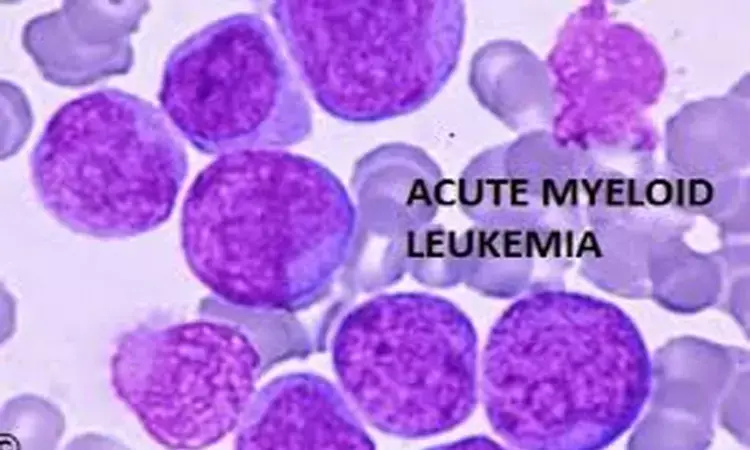- Home
- Medical news & Guidelines
- Anesthesiology
- Cardiology and CTVS
- Critical Care
- Dentistry
- Dermatology
- Diabetes and Endocrinology
- ENT
- Gastroenterology
- Medicine
- Nephrology
- Neurology
- Obstretics-Gynaecology
- Oncology
- Ophthalmology
- Orthopaedics
- Pediatrics-Neonatology
- Psychiatry
- Pulmonology
- Radiology
- Surgery
- Urology
- Laboratory Medicine
- Diet
- Nursing
- Paramedical
- Physiotherapy
- Health news
- Fact Check
- Bone Health Fact Check
- Brain Health Fact Check
- Cancer Related Fact Check
- Child Care Fact Check
- Dental and oral health fact check
- Diabetes and metabolic health fact check
- Diet and Nutrition Fact Check
- Eye and ENT Care Fact Check
- Fitness fact check
- Gut health fact check
- Heart health fact check
- Kidney health fact check
- Medical education fact check
- Men's health fact check
- Respiratory fact check
- Skin and hair care fact check
- Vaccine and Immunization fact check
- Women's health fact check
- AYUSH
- State News
- Andaman and Nicobar Islands
- Andhra Pradesh
- Arunachal Pradesh
- Assam
- Bihar
- Chandigarh
- Chattisgarh
- Dadra and Nagar Haveli
- Daman and Diu
- Delhi
- Goa
- Gujarat
- Haryana
- Himachal Pradesh
- Jammu & Kashmir
- Jharkhand
- Karnataka
- Kerala
- Ladakh
- Lakshadweep
- Madhya Pradesh
- Maharashtra
- Manipur
- Meghalaya
- Mizoram
- Nagaland
- Odisha
- Puducherry
- Punjab
- Rajasthan
- Sikkim
- Tamil Nadu
- Telangana
- Tripura
- Uttar Pradesh
- Uttrakhand
- West Bengal
- Medical Education
- Industry
Investigational drug Shows Survival Benefit For Some Leukemia Patients in Phase 3 study

An investigational drug taken while undergoing chemotherapy demonstrated superior overall survival compared to chemotherapy alone in adult patients with a common, highly aggressive subtype of acute myeloid leukemia (AML).
The large international phase 3 study, co-led by Duke Cancer Institute researcher Harry P. Erba, M.D., Ph.D., demonstrated that the drug quizartinib plus chemotherapy resulted in a median overall survival of 31.9 months. The median survival time was more than twice that of study patients randomly assigned to standard chemotherapy and placebo (15.1 months).
The findings are presented at the European Hematology Association meeting in Vienna, Austria on June 11.
AML is one of the most common forms of leukemia in adults, representing about one-third of all cases. The five-year survival rate of AML is about 29%. Patients in the study had a subtype of AML known as FLT3-ITD positive, which typically has worse outcomes.
"We focused on patients with AML in this high-risk group and saw a significant survival benefit with the addition of a very potent and highly targeted therapy to the standard treatment," Erba said.
The study enrolled 539 AML patients with the FLT3-ITD mutation who were randomly assigned to either receive the study drug or placebo, along with chemotherapy. Patients were between the ages of 18 and 75 years old.
A second round of chemotherapy was allowed if AML was found in a post-induction bone marrow exam. Patients who achieved complete remission or complete remission with incomplete blood count recovery received up to four cycles of a standard chemotherapy regimen called high dose Ara-C with either quizartinib or a placebo followed by up to three years of continuation therapy with quizartinib or placebo alone. Patients in remission could also proceed with a bone marrow transplant.
The oral pill is manufactured by Daiichi Sankyo, which funded the study.
"We are encouraged by these findings, particularly for this group of AML patients who have particularly poor outcomes," Erba said. "The data indicates that this therapy was also generally well-tolerated, which is important."
Dr Kamal Kant Kohli-MBBS, DTCD- a chest specialist with more than 30 years of practice and a flair for writing clinical articles, Dr Kamal Kant Kohli joined Medical Dialogues as a Chief Editor of Medical News. Besides writing articles, as an editor, he proofreads and verifies all the medical content published on Medical Dialogues including those coming from journals, studies,medical conferences,guidelines etc. Email: drkohli@medicaldialogues.in. Contact no. 011-43720751


